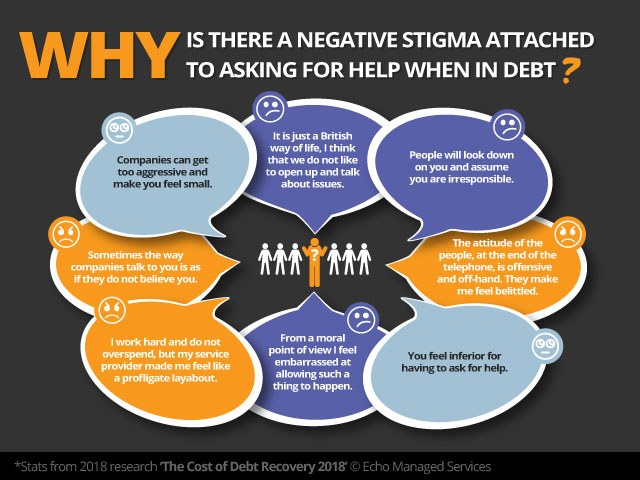More than half (52%) of people feel there is a negative stigma attached to asking for help if they fall into debt, according to new research we recently conducted.
The study surveyed 1,000 UK residents on their experiences, knowledge and attitudes to household arrears.
It found that 59% of customers attribute this debt stigma to societal stereotyping and their own feelings of shame, embarrassment or inadequacy. A further 36% blame the practices used by their service providers for making them feel that way and the remainder stated it was a combination of both factors.
Those respondents who felt that service providers were at fault highlighted a tendency for advisors to be ‘offhand’ or ‘aggressive’ in their communication; often making assumptions about the customer’s background or why they had fallen into debt.

Furthermore, when asked whether (throughout the debt recovery process) customers felt valued by their service provider, a worrying picture emerged. Only a quarter (25%) of customers felt valued, while 60% of people said that they did not feel valued as a customer – a figure which has jumped up by 12% since similar research was undertaken in 2016.
“Understandably, falling behind on payments can be a very stressful time, so it is concerning that so many people may feel too embarrassed to ask for help; something which may further compound the issue. Debt affects a huge cross-section of people, for many different reasons, so it’s crucial that service providers work hard to understand the issues of every single individual and help them to find a balanced resolution.”
Monica Mackintosh, Customer Services Director, Echo Managed Services
The findings also highlight just how important it is for organisations to stand out as approachable and helpful. Ensuring all communications convey this is vital; across verbal and written contact, as well as the general tone of information available on a company’s website. Reflecting on current practice and being more customer-centric can help organisations to both minimise customer debt and its effect on their reputation.